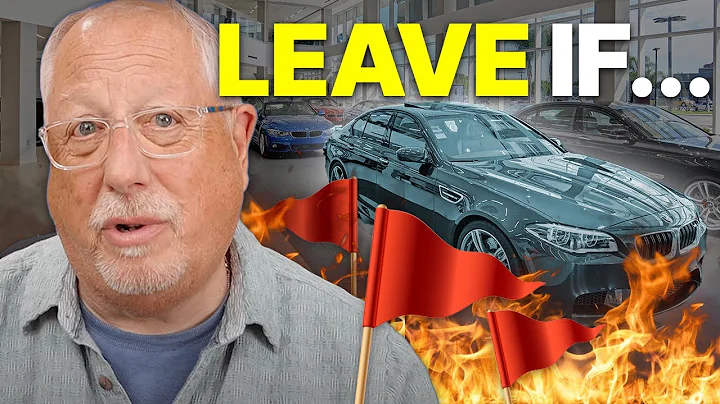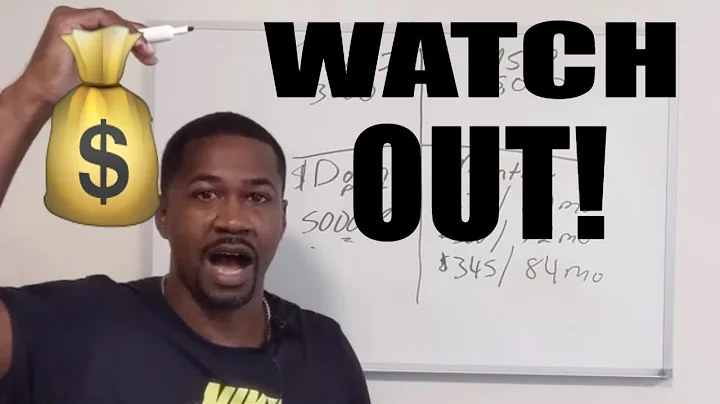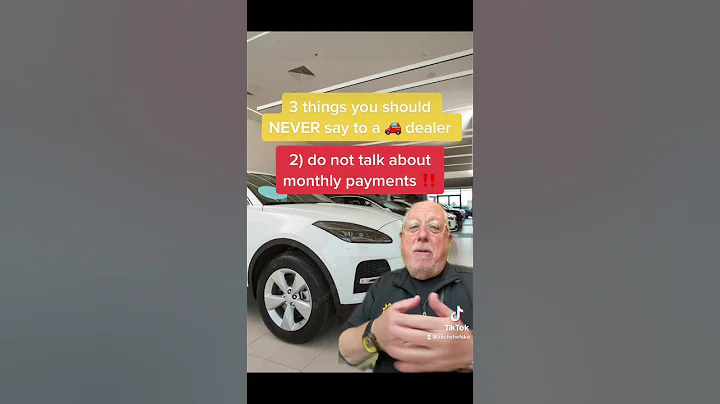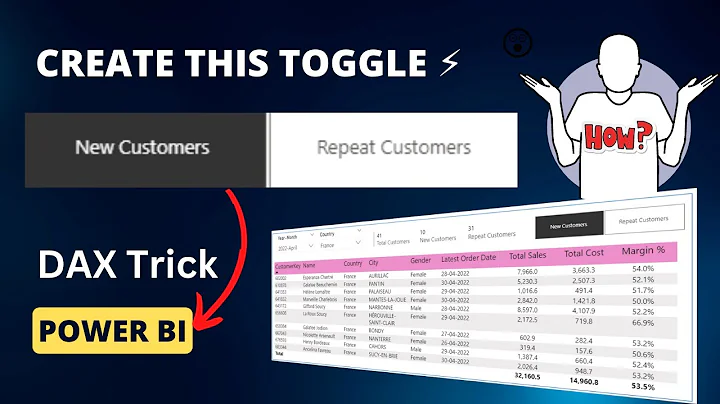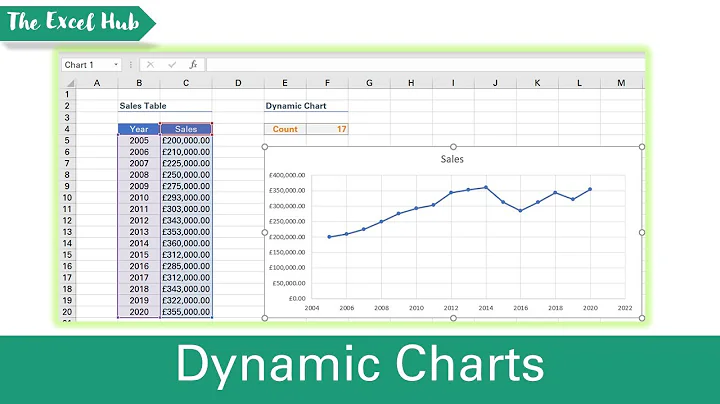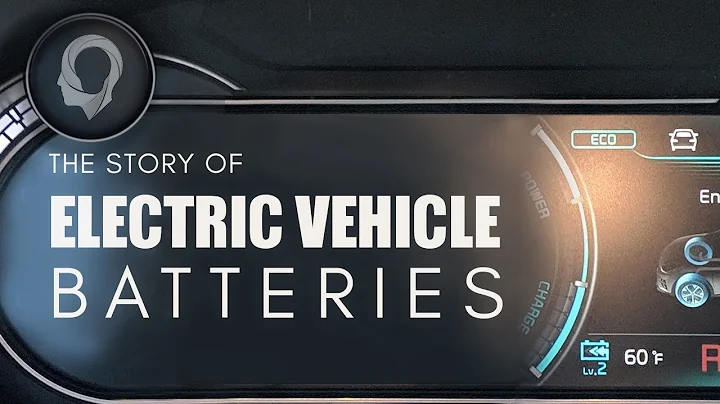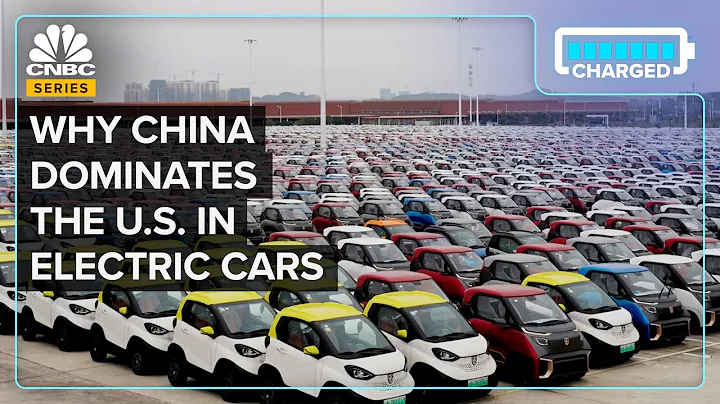/ Hong Hanqi, edited by Wang Xin
/ Mao Shiyang
Can’t stop losing money, the second-hand car dealer refuses to take the car
Wu Guang, a second-hand car dealer who has been in the business for more than ten years, has never experienced such a market situation this year.
"I have 30 cars in stock, and I lost 200,000 yuan in two months." A second-hand car dealer in Zhejiang said, but he was already very lucky, "Some peers have more than 200 cars in stock. Think about them "

Source/Visual China
"Financial World" weekly found that due to the impact of the general environment, since March this year, the Beijing-Tianjin-Hebei, Yangtze River Delta, Pearl River Delta and other key areas for domestic second-hand car transactions, Has entered the "freezing point" state. Except for Sichuan and Chongqing, the transaction scale of other domestic second-hand car markets has shrunk significantly.
According to China Automobile Dealers Association (hereinafter referred to as the Circulation Association) statistics, from March to May this year, the national single-month transaction volume and transaction value of second-hand cars continued to decline year-on-year. In the first five months of this year, the cumulative transaction volume of domestic second-hand cars was approximately 6.17 million units, a year-on-year decrease of 10.69%, and the cumulative transaction value was approximately 430.3 billion yuan, basically the same as the same period last year.
"Car dealers are having a hard time, mainly because of the backlog of inventory and the circulation time of the cars in their hands has become longer." Wu Guang, a second-hand car dealer whose business is concentrated in the Beijing area, told Caijingtianxia Weekly that after receiving a car, he usually sells it within 1 It is more reasonable to sell within 1.5 months. The car cannot be sold, but the expenses in the store will not stop. "As time goes by, funds will naturally become tight."
According to statistics from the Circulation Association, the average inventory cycle of the domestic second-hand car market in May this year was 47 days, which was 47 days longer than in April. The two-day extension directly led to delays in the withdrawal of funds by car dealers and increased operating risks.
Used cars are a heavy asset investment business. Most second-hand car dealers are self-employed. In their view, the cold market has brought about more serious problems: the circulation cycle of inventory vehicles has begun to lengthen, and the turnover has changed. Slow means that it becomes difficult to withdraw funds.
Wu Guang told "Financial World" weekly that the market price of his second-hand car "inventory" is mainly below 100,000 yuan, which has reduced financial pressure to a certain extent and allowed him to escape the industry's low temperature. "Low-priced second-hand cars don't have much impact." Li Qun, who has taken root in the Beijing market, no longer has this calmness. His car dealership is mainly engaged in the second-hand luxury car business. It has a large initial capital investment and mainly relies on financing loans. "Many replacement customers choose to wait. They cannot get their money back. Every day they open their eyes and they are stressed."
Zhejiang mentioned above Second-hand car dealers said that under normal conditions, the profits of second-hand car transactions are concentrated at around 20%, but now, the profits of single-car transactions have dropped to 3% to 5%. “Sometimes you even lose money and you have to sell the car to get it back.” Funds. "
"The cars that were sold in good times now need to be sold at a reduced price or sold at a loss. We cannot keep the goods at a discount," a second-hand car dealer in Beijing told Caijingtianxia Weekly. source, the closing price will also decrease accordingly.
Under this background, most second-hand car dealers dare not accept the cars. Many car owners find it difficult to sell their cars.

Picture source/Visual China
Cheng Cheng, who needs replacement, told Caijingtianxia Weekly that in early June, she uploaded the information of her car to some second-hand car trading platforms, but half a month later, the vehicle is still "reserved" "Status, no staff followed up, and no second-hand car dealer contacted me.
In the view of Yang Cheng, who has been in the industry for more than ten years, the second-hand car market has been cold for some time. "The overall market environment is indifferent, new cars cannot be sold, and second-hand cars are also affected."
The shortage of automobile supply chains that began in the second quarter of this year once made it difficult to find a car in the new car market. At that time, the tight consumption of new cars was believed by industry insiders to trigger a boom in second-hand car transactions.
" There is growth, but very small."Yang Cheng believes that after the Spring Festival, the traffic into stores continues to be sluggish, and consumers' overall willingness to buy cars is also declining. The consumption space that can be transferred in the new car market is very limited.
.56 million second-hand car dealers are looking for a way out
Inventory sales in hand However, the market began to "change".
On May 31 this year, the Ministry of Finance and the State Administration of Taxation jointly announced that the price of bicycles purchased between June 1 and December 31, 2022 should not exceed 300,000. Passenger cars with a displacement of less than 2.0 liters can enjoy the halving purchase tax policy.
Purchase tax reduction is a favorable policy to stimulate new car consumption, and past market experience also proves that the halving purchase tax is beneficial to domestic market consumption. However, the exciting news in the new car market is a danger signal for second-hand car dealers.
“Once the purchase tax is halved, some of the models we previously charged at high prices, especially those that are new within 3 years, will definitely be sold. The price has been reduced. "A second-hand car dealer in Guangdong told Caijingtianxia Weekly that the price of new cars is unstable, and second-hand cars will be directly affected. "The price difference earned has become smaller, and some car dealers are expected to have to lose money. ”
According to the Circulation Association, the decline in the rate of consumers entering stores is the main reason for the decline in second-hand car sales this year. The preferential prices of new cars and the support of local government car purchase subsidies have made some consumers who originally intended to buy second-hand cars begin to switch. In the new car market, second-hand car inventory cannot be released.
According to Shen Rong, deputy general manager of Beijing Guolianpai Technology Co., Ltd., domestic second-hand car consumption is still dominated by fuel vehicles. The continued rise in oil prices this year has inhibited this to a certain extent. Consumers’ willingness to buy cars. “The rise of new energy vehicle consumption, especially the hot sales of A0-class and A00-class new energy vehicles, has also diverted the purchasing power of some second-hand car users. "
" The elimination of the second-hand car industry has always existed, but it is especially obvious this year. "A second-hand car practitioner told Caijingtianxia Weekly that at present, insufficient market demand has become an established fact, and the profit model that once relied on poor information and circulation barriers to make price differences has become unsustainable.
天eyecheckprofessional Statistics from March this year show that there are currently more than 560,000 companies in my country whose business scope includes "second-hand cars". Businesses that are too scattered have generally weak ability to withstand pressure.
In fact, some used car industry analysts believe that. , The elimination of the market has just begun. The more cruel aspect is that the used car industry is breaking away from the "barbaric growth" development model and entering a new stage of competition in management capabilities, service capabilities and technical support capabilities.
In the eyes of industry insiders. , the used car market potential is still huge, but although it has a trillion-yuan market space, the current situation of the used car industry is extremely fragmented competition, poor scale effect, unsatisfactory profitability, opaque pricing mechanism, unhealthy cost structure, and high Variable costs , resulting in poor profitability for merchants
In addition, the industry is an asset-heavy operating model. In addition to procurement costs, second-hand car dealers also need to have capabilities in testing, warehousing, sales, logistics, contract fulfillment, maintenance, etc., which requires funds. High. In addition, because the inventory turnover of second-hand cars is 1-2 months, the capital turnover capacity is very high. Only enterprises with certain financial strength can survive.

Source/Visual China
"The industry has become It is more transparent, and the situation of collecting at a low price and selling at a high price no longer exists. "In Yang Cheng's view, the market conditions are changing, and the business model of second-hand car dealers is also changing. "With transparent car conditions and transparent car prices, second-hand car dealers will mainly earn service fees in the future, such as vehicle quality inspection and vehicle condition warranty. . "
" Our used car industry is more pessimistic and sighing about the industry. Because the sales price of second-hand cars is high and they cannot be sold, they will lose money. There are also many cars that are in storage and have lost all their profits last year."Manager Yang, a car dealer with 15 years of experience in buying and selling second-hand cars, said.
But he does not think that the second-hand car business is difficult to do, but that the second-hand car industry has entered a self-elimination process. "The second-hand car industry has not formed a certain trend. brand effect , the average cultural level of industry practitioners is not high, and the used car industry industry chain does not have subdivided areas. These three points can only show that the competition for second-hand cars has just begun. "
" The used car industry has been experimenting and iterating business models. "Shen Rong told Caijingtianxia Weekly that the capital boom in the second-hand car industry from 2013 to 2015 focused on new business formats such as second-hand car e-commerce and second-hand car financial services.
In Shen Rong's view, This “second-hand car industry crisis” also provides an opportunity for industry transformation. “It will help drive market share closer to the leading used car companies, which will be conducive to the sustainable development of the industry in the long run. ”
Policies to alleviate difficulties in the second-hand car industry
According to statistics from the Circulation Association, the domestic second-hand car transaction volume in 2021 reached 17.5851 million units, and the transaction value reached 1.131692 billion yuan, with year-on-year increases of more than 20%. The transaction ratio of used cars to new cars hit a record A new high, reaching 0.87:1.
This level is still far behind the mature automobile market. Taking the data of used car to new car transaction ratio as a reference, the sales ratio of mature automobile market is generally 1.5:1, which means that The demand for second-hand car transactions at this stage is far from being truly released.
Luo Lei, deputy secretary-general of the China Automobile Dealers Association, once told Caijingtianxia Weekly that second-hand cars are important in revitalizing car stocks, driving new car growth, and promoting car consumption. Function. When new car sales reach saturation, second-hand car transactions will become the mainstay of new car sales. If the circulation of second-hand cars is not smooth, it will inevitably hinder new car transactions.
In order to promote car consumption, the second-hand car value-added tax reform policy was implemented in May 2020. Introduced, the value-added tax levied on the second-hand cars purchased by taxpayers engaged in second-hand car distribution will be changed from the simplified 3% collection rate to a reduced 2% value-added tax to a 0.5% reduced value-added tax. , there are also growing calls for the cancellation of the relocation restriction policy and the restoration of the trademark attributes of second-hand cars.
“The current proportion of second-hand car transfers across the country is around 30%. In the past, various places restricted the relocation of second-hand cars, and some vehicles with low emission standards would be restricted from relocation due to emission standards. Relocation-restricted areas can only be 'internally circulated', which will result in fewer cars, higher prices, sellers dominating the market, and consumers being unable to buy second-hand cars at the right price. "A second-hand car expert in the automobile circulation industry told Caijingtianxia Weekly, "If all places relax restrictions on relocation, export-oriented cities can sell more cars to other places, which can increase the proportion of off-site transactions and boost overall transactions. quantity. "
At the end of May this year, the State Council issued the " Package of Policies and Measures to Solidly Stabilize the Economy", urging all localities to comprehensively cancel the relocation restriction policy for second-hand cars, and to remove restrictions nationwide on small non-operating used cars that meet the National V emission standards. , improve the registration, filing and vehicle transaction registration and management regulations for second-hand car market entities.
In addition, on June 22, the State Council executive meeting proposed to activate the second-hand car market and promote car renewal consumption, further clarifying the time point: for small non-operating second-hand cars. Car relocation restrictions will be completely lifted from August 1st, and transfer registration will be subject to separate endorsement and issuance of temporary license plates from October 1st.
In the opinion of the above-mentioned industry insiders, with the liberalization of many policies, second-hand cars have become more and more popular. Circulation will be further activated. “Consumers will have more choices for second-hand cars and car prices will also decrease. "But such a good thing for the industry is also a signal of intensified competition. For example, second-hand car practitioners in second- and third-tier cities will face the impact of the car supply in first-tier cities.
The improvement of the temporary property rights registration policy is considered to be beneficial to second-hand car distribution Enterprises develop on a large scale.
According to the previous policies and transaction procedures, second-hand cars were defined more as "assets" rather than "commodities". Previously, second-hand car transactions were fixed asset transactions under an individual's name. The transfer of ownership was completed only after the transfer was completed. It was not The transfer of ownership is completed upon entering the circulation basin. Therefore, the procedures for second-hand car transactions are cumbersome and prone to problems such as unclear property rights and difficulty in loan approval by financial institutions, resulting in limited financing and long-term development.
"There is an urgent need for a temporary property rights registration system for second-hand cars. That is, after a second-hand car is acquired by a merchant, the second-hand car is coded. This code can be distinguished by a temporary number plate, and the car's code can be used instead of the number plate for circulation. However, It cannot be driven on the road, and temporary property rights registration is required for merchants in the circulation chain. "After the second-hand car restores its product attributes, it can be freely circulated. Before there is an end user to buy it, there is no need to pick up the car and pick up the car for each transaction," Cui Dongshu said. This can greatly reduce costs and improve turnover efficiency. At the same time, second-hand cars can be recorded as commodities and can be mortgaged in banks to obtain financing, thus helping second-hand car companies grow rapidly. "
" Used car related. The macro-policy of relocation, taxation, and commercialization seems to have been solved now.” The above-mentioned used car expert from the Automobile Dealers Association told Caijingtianxia Weekly that after the policy is implemented, the second-hand car transaction volume is expected to hit the 20 million target.
html On June 23, the China Automotive Strategy and Policy Research Center issued a report predicting that about 4.9 million old cars across the country need to be updated this year. Based on the average selling price of new cars of 150,000 yuan, the update of these old cars is expected to bring in 735 billion yuan this year. yuan consumption-stimulating effect.
However, changes in the relocation restriction policy have also brought challenges to some second-hand car dealers in the short term. A second-hand car dealer in Guangdong said that with the opening of the "National Five" relocation restriction policy, the store had previously accumulated "National Five" inventory cars in the Pearl River Delta region and could only deal with them at a loss.
For second-hand car dealers, whether to continue to "bear" the pressure and wait for the market to pick up, or to change careers before dawn, will be the test faced by the 560,000 operators.
(At the request of the interviewee, Wu Guang, Yang Cheng and Cheng are all pseudonyms in the article)


